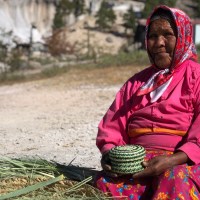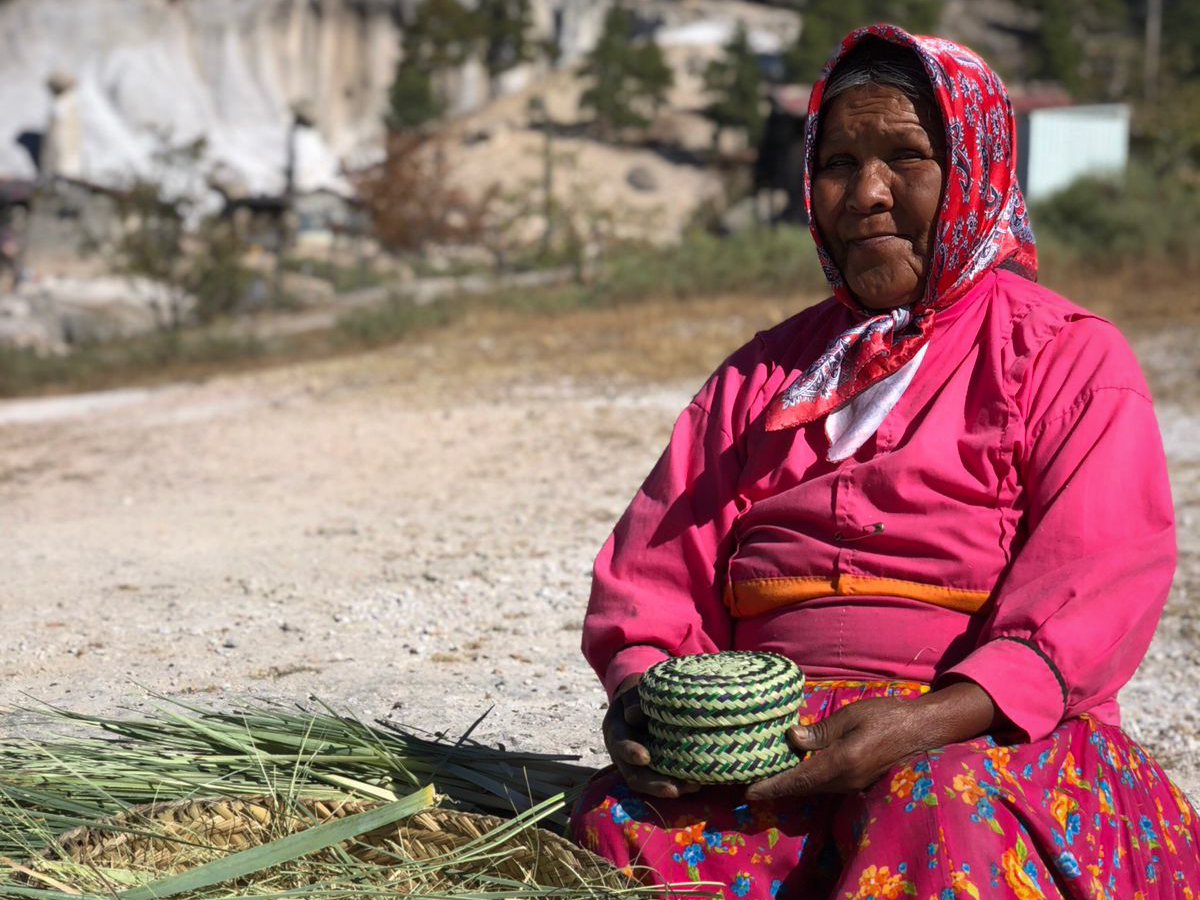Agripina was at the back of the store, with bright brown eyes and a contagious smile. Her young figure was covered by a colorful mapáchaka blouse, made with the traditional cotton fabric, reversible, and sewn entirely by hand. Even in a room full of handicrafts from the Tarahumara area of Mexico–big pine baskets, small pine coasters, embroidered napkins, and wooden figures of indigenous women–Agripina stood out.
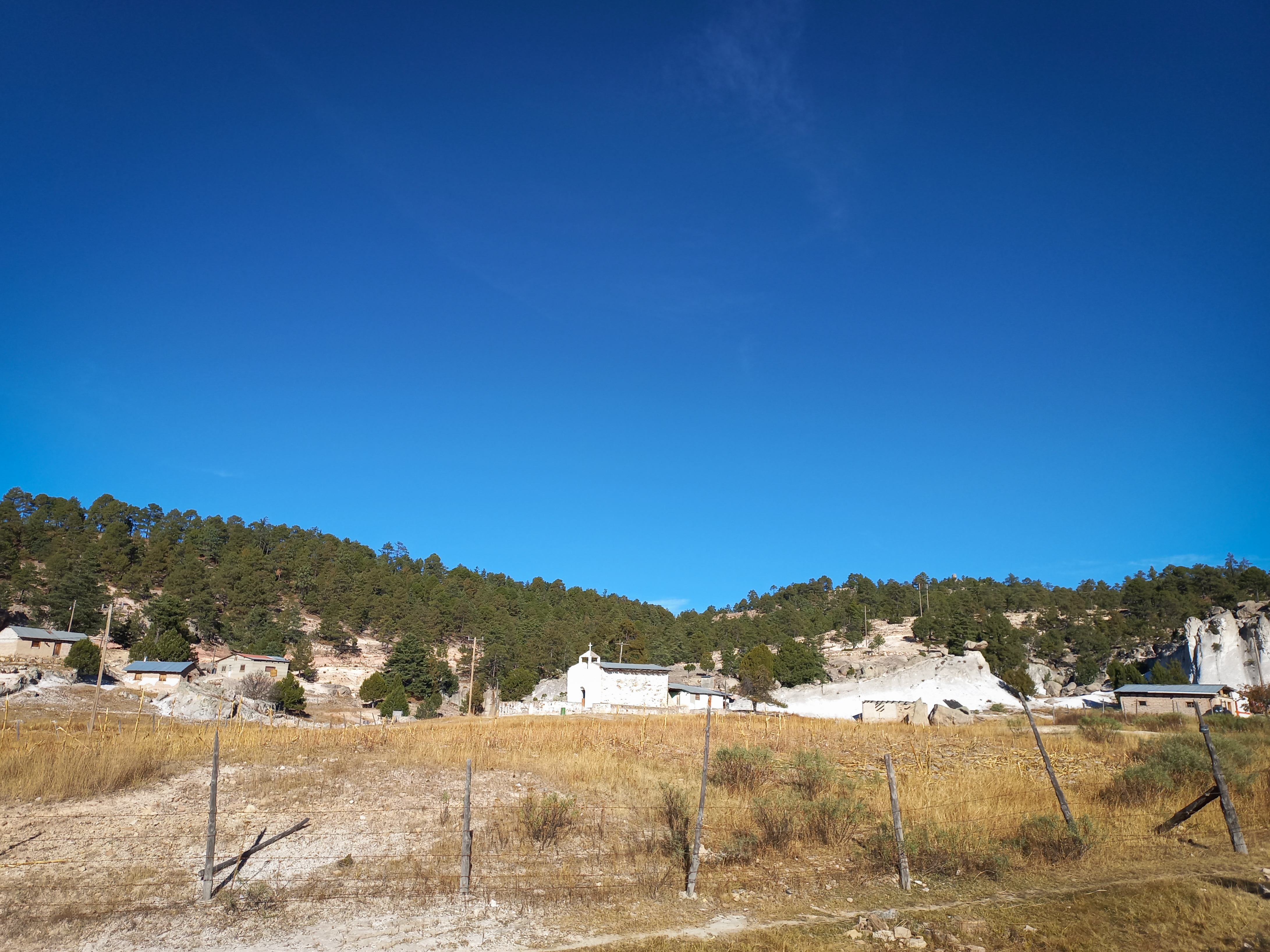
She swayed from one side to another as she listened to customers visiting the shop. An astute businesswoman, Agripina gave prices of the products, made sales, and took notes.
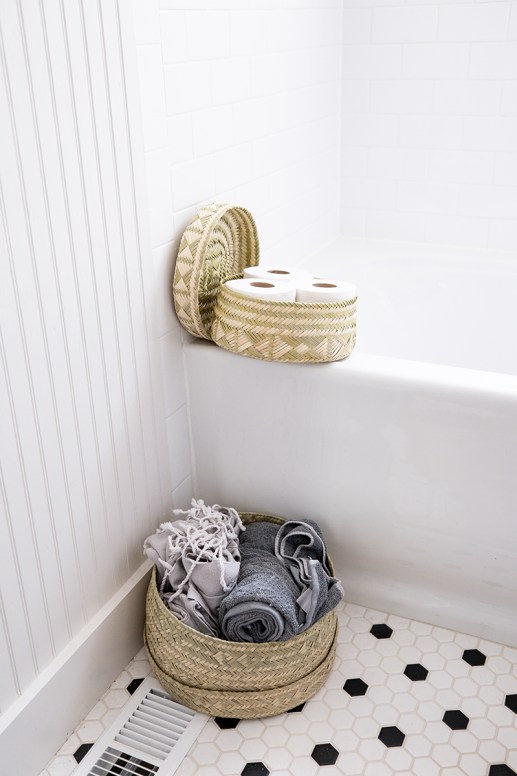
Agripina is a proud Rarámuri, an indigenous people who live in the sierras and canyons of Mexico’s Sierra Tarahumara. “I speak my Rarámuri language,” Agripina says with a smile, “and wear my traditional dress. I am very proud of who I am, and that I speak two languages: Rarámuri and Spanish.” This declaration of pride is rather subversive. Those who live on the land, and care for the environment, too often find themselves preyed on by drug lords and others whose economic prosperity depends on controlling the land. Indigenous people like Agripina experience and bear witness to violence every day, like the burning of their houses, the murder of civilians, and forced labor for cartels that grow and smuggle drugs for the US market.
Agripina lives in this dual reality: she is a strong, talented artist, daughter of a strong, talented artist, and she also comes from remote, rural communities that lack food security and the means to take care of children with tuberculosis.
For Agripina, the indigenous of northern Mexico survive by keeping their traditions and customs alive despite the poverty and violence surrounding them. And one of those traditions is creating goods they need, like baskets, from the land around them.
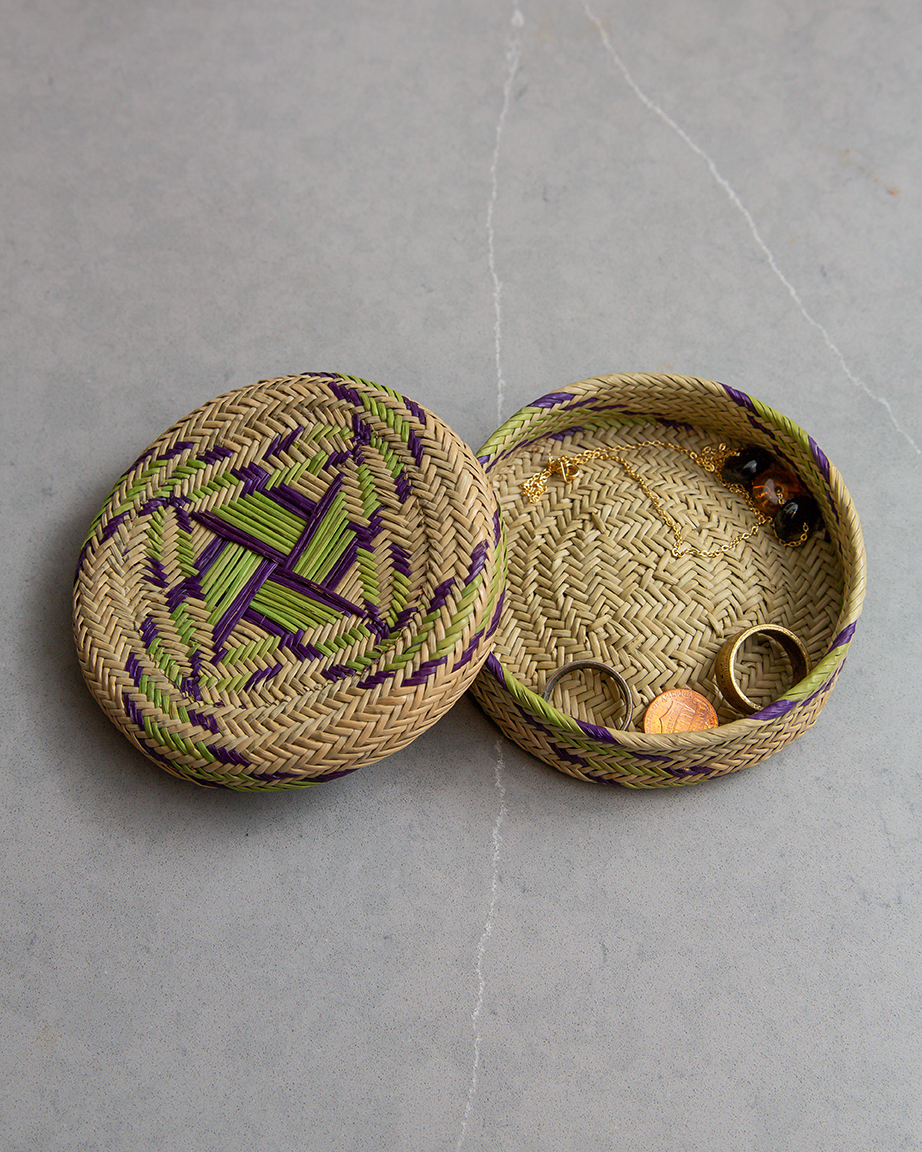
Indigenous handcrafts use natural materials that are native to their communities and harvested in a sustainable way, such as pine needles and leaves from the sotol plant. It might be difficult to imagine, but natural, indigenous-made products are a symbol of the frontlines against violence in Mexico.
When artists and makers in the Sierra Tarahumara are able to take care of their families through the products they make, they are less vulnerable to cartels, less likely to be forced into criminal activities by the cartels, and are more resilient and able to recover faster when experiencing traumatic events.
Agripina and other makers from her community have created a hand-woven collection of baskets and coasters that can be purchased through our shop. When you purchase their products, you not only get something useful and beautiful for your home or a friend’s—you help Agripina and her community to change their story.
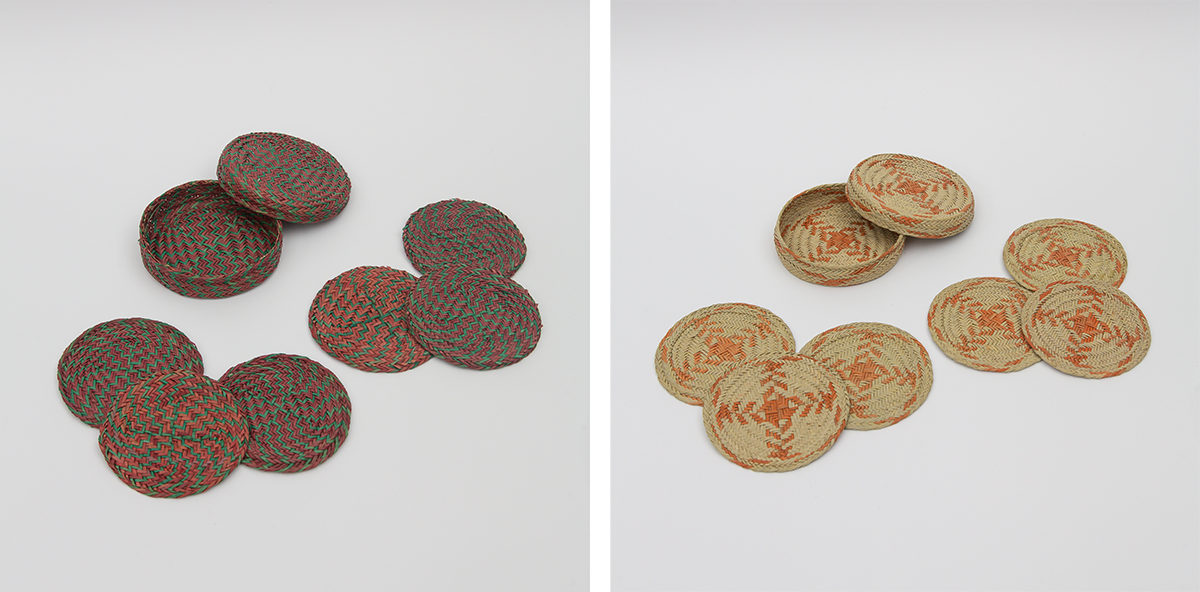
You can help change the story that rural Mexicans are helpless to the power of cartels, to artists who bravely face the front lines of violence every day.
You can help change the story that indigenous people have to give up their way of life to survive, to community members who are empowered and have agency.
You can help change the story that Agripina and her community are on their own, to one where we’re woven together.

